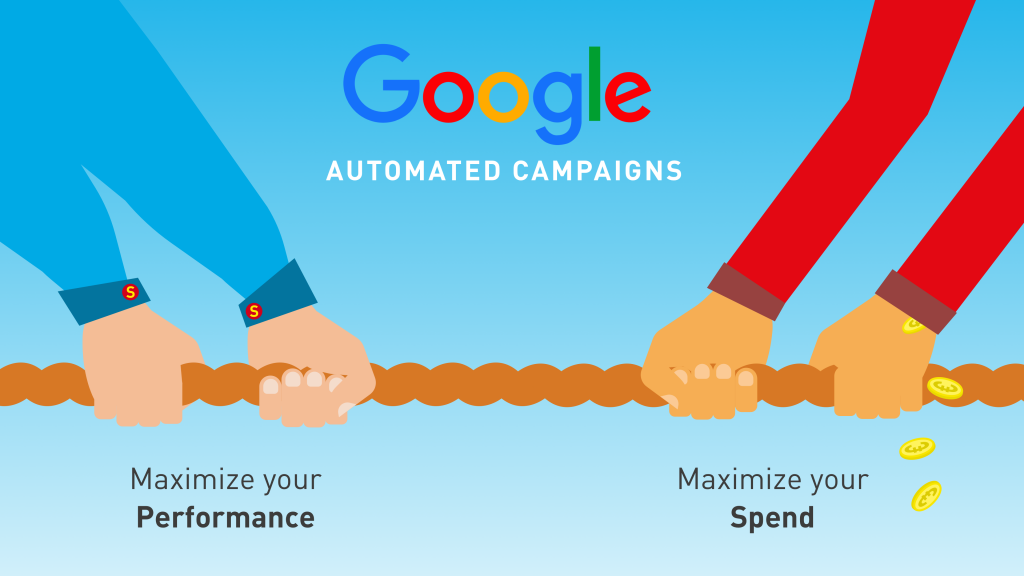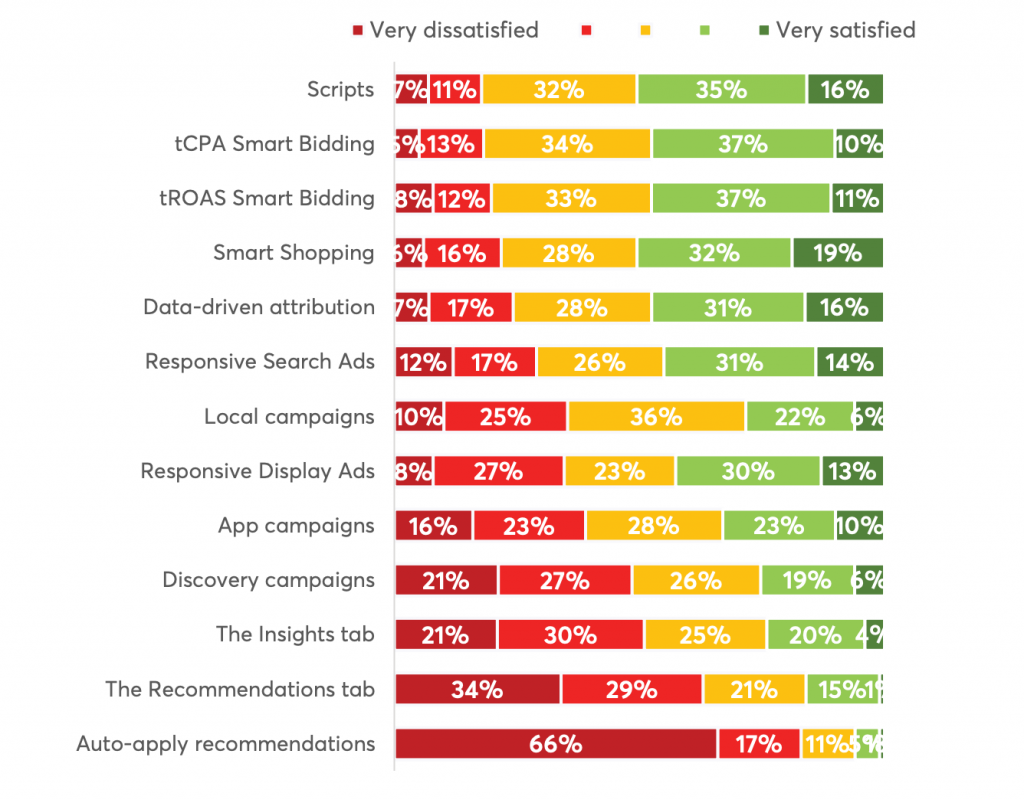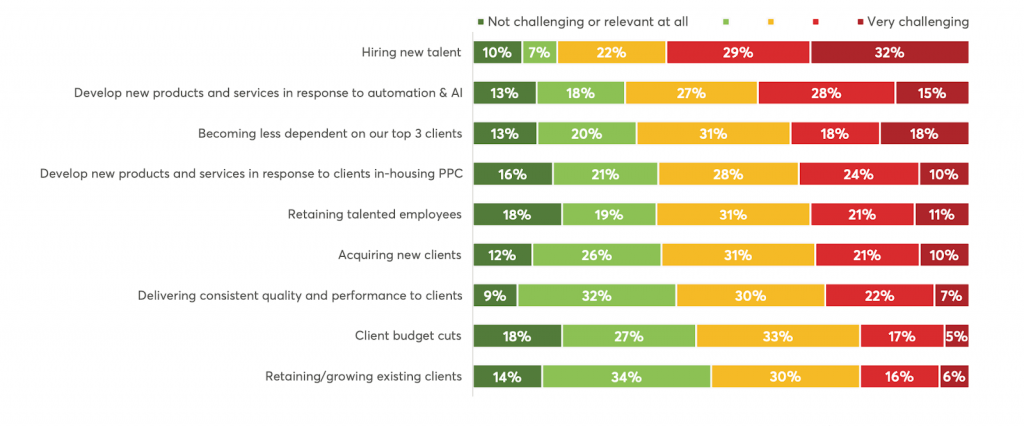In Google Ads automations we trust (to some extent)
PPC specialists are quite happy with Google’s automated campaigns, while on the other hand they seem to be suspicious about Google’s recommendations tab and auto-apply recommendations. This is one of the most interesting insights we took from the PPC survey 2022. Talking to advertisers we found that this is mainly due to the thought that Google’s recommendations are in many cases there to increase their spend.
Producthero is one of the founding partners of the PPC Survey 2022 (free download, no email needed). Over 540 PPC professionals from all over the world told us how they view the increasing automation in Google Ads, among other things.

Satisfaction with Google Ads automations
PPC specialists seem to be quite satisfied with fully automated campaign types, such as Smart Shopping (at the time the survey was conducted, Performance Max was not a thing yet.)
The research shows that PPC professionals are very satisfied with fully automated campaigns. About Smart Shopping, 78% of specialists are satisfied to neutral about it. (at the time the survey was conducted, Performance Max was not a thing yet.)
We see dissatisfaction with the recommendations tab and auto-apply recommendations.

When talking with PPC specialists about Google’s recommendations, we hear that in most of the cases they feel these recommendations are in many cases there to increase the spend.
They mention Google’s conflict of interest. Maximizing performance for its advertisers, while at the same time maximizing their spend.
Asking some PPC specialists deeper about this, we find that they feel Google’s recommendations are designed to give advertisers a good performance, but also to:
1. Maximize the spend of the advertiser
2. Maximize the coverage of Google’s ad inventory
The satisfaction with fully automated campaigns can be explained by the fact that such campaigns good results for many advertisers.
The biggest challenge
We found in the survey that for many agencies the biggest challenge, after hiring new talent, is “Developing new products and services in response to automation & AI”.

Over the last years, we analysed hundreds of fully automated campaigns. We found that a large part of the ad spend within those campaigns go to products and placements that are far below the campaign goals.
Why does this happen? For the exact same reason why advertisers are suspicious about Google’s campaign recommendations. These automations are also designed to maximize the spend of the advertiser and maximize the coverage of Google’s ad inventory.
It leads to decisions a PPC specialist wouldn’t necessarily make if he had the control. Like overspending on products if there is headroom within the ROAS target. And investing in placements that do not necessarily add much to the goal. As long as it fits within the goal these less efficient investments are compensated by successful parts of the campaign.
With fully automated campaigns therefore the challenge of the PPC specialists seems to shift more towards finding ways to better control fully automated campaigns.
It becomes clear that times are changing. A clear need for agencies and direct advertisers has arisen to have a competitive edge in an ever-growing and changing ecommerce market. The challenge to get the benefits from Google’s automations while staying ahead of the curve. At Producthero we help with that by developing solutions in response to growing campaign automation by Google, which asks for new tools and optimization approaches.
About the PPC survey report
540 PPC professionals told us all about their ad platform adoption, usage, frustrations, satisfaction, automation, pricing, third-party tooling, and much more. We’ve compiled their answers in this 47-page report.
The most in-depth survey ever done across PPC professionals for you to download for free on https://www.ppcsurvey.com/ No email needed.
